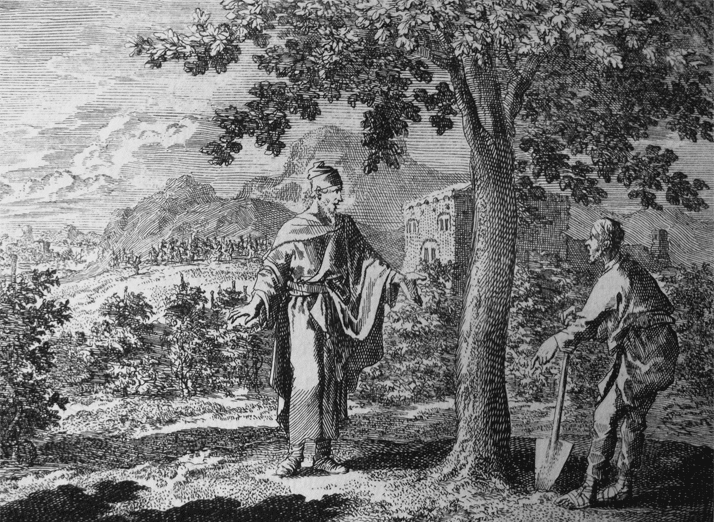Ex. 3:1–8, 13-15 / Ps 103:1–4, 6–8, 11 / 1 Cor. 10:1–6, 10–12 / Lk 13:1–9
In the Church, we are made children of the God of Abraham, Isaac, and Jacob — the God who makes known his name and his ways to Moses in today’s First Reading.
Mindful of his covenant with Abraham (see Exodus 2:24), God came down to rescue his people from the slave drivers of Egypt. Faithful to that same covenant (see Luke 1:54—55, 72—73), he sent Jesus to redeem all lives from destruction, as today’s Psalm tells us.
Paul says in today’s Epistle that God’s saving deeds in the Exodus were written down for the Church, intended as a prelude and foreshadowing of our own baptism by water, our liberation from sin, our feeding with spiritual food and drink.
Yet the events of the Exodus were also given as a “warning” — that being children of Abraham is no guarantee that we will reach the promised land of our salvation.
At any moment, Jesus warns in today’s Gospel, we could perish — not as God’s punishment for being “greater sinners” — but because, like the Israelites in the wilderness, we stumble into evil desires, fall into grumbling, forget all his benefits.
Jesus calls us today to “repentance” — not a onetime change of heart, but an ongoing, daily transformation of our lives. We’re called to live the life we sing about in today’s Psalm — blessing his holy name, giving thanks for his kindness and mercy.
The fig tree in his parable is a familiar Old Testament symbol for Israel (see Jeremiah 8:3; 24:1—10). As the fig tree is given one last season to produce fruit before it is cut down, so too Jesus is giving Israel one final opportunity to bear good fruits as evidence of its repentance (see Luke 3:8).
Lent should be for us like the season of reprieve given to the fig tree, a grace period in which we let “the gardener,” Christ, cultivate our hearts, uprooting what chokes the divine life in us, strengthening us to bear fruits that will last into eternity.

